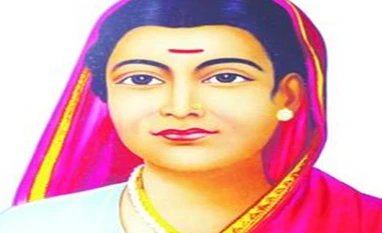India is celebrating the birth anniversary of the country’s first woman teacher, Savitribai Phule. Born in a small village in Satara district of Maharashtra on January 3, 1831, Savitribai Phule is known for her work as a social worker, poet, and teacher. She was an active participant in the women's liberation movement and later became the first woman teacher in India. She fought a long battle to improve the women's situation in the country.
Savitribai, along with her husband, shaped the education system for girls and helped change many social norms.
Savitribai Phule Early Life and Education
Savitribai Phule married Jyotiba (social activist and businessman) at a very early age. When they both tied the knot, Savitribai was just 9 years old, and Jyotiba was 13 years old.
Illiterate at that time, her husband became her mentor and taught her how to read and write at their home. However, there were strict social norms restricting women's education. Savitri completed her education despite all the challenges that existed for Dalits who were deprived of education. She fought against all the evils; she even faced untouchability in her society, but Savitribai didn't stop, and her determination was strong enough, which led her to enrol in a teacher's training program in Pune and Ahmedabad after completing her education to become a teacher.
Savitribai Phule's achievement
Savitribai, with her husband Jyotirao Phule, started India's earliest girls' school, which broke the patriarchy barriers and became India's first woman teacher and first Indian headmistress. By the time of 1851, Savitribai Phule established three schools for women in Pune showing her commitment to education for all.
Pune University is named after Savitribai Phule, which is a tribute to this fierce lady who stood strong for women's education in India.
More From This Section
Savitribai's Social Reform and Activism
The contribution of Savitribai Phule is not limited to education only. She challenged the norms of society by opening a home for the prevention of infanticide, offering shelter to widows and allowing her to leave their children for adoption purposes. She strongly fought against child marriage and the Sati tradition, she advocated for the remarriage of widows and raised awareness on many other critical issues.
Inclusive education approach
Savitribai Phule made history by hiring Fatima Begum Sheikh in Bhida Wada School. Fatima Begum was the friend of Jyotibha's husband, Usman Sheikh. Fatima became the first Muslim woman teacher in the country. Despite facing resistance from conservative communities, she continued to teach girls and children from different castes, promoting inclusivity in education.
Demise of Savitribai Phule
Savitribai Phule's life came to an end on 10 March 1897, when she succumbed to a disease when she tried to protect a 10-year-old boy. Savitribai Phule's legacy is a trailblazer in women's education, and social reform, leaving an indelible mark in the history of India.
)